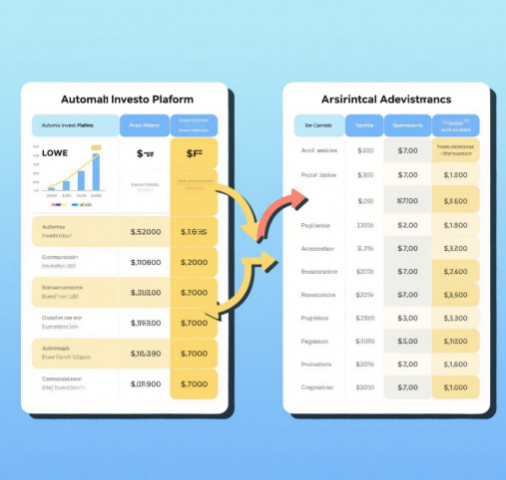Robo-Advisors vs. Human Financial Advisors: Which Is Right for Your Portfolio?

In an era defined by digital innovation and shifting financial priorities, investors aged 20 to 40 face a critical question: Should they entrust their portfolios to algorithm-driven robo-advisors or partner with traditional human financial advisors? This decision hinges on balancing two core factors—cost efficiency and personalized service—each offering distinct advantages tailored to different investment goals and lifestyles.
The Cost-Effective Allure of Robo-Advisors
Robo-advisors have revolutionized accessibility to investment management through their streamlined, technology-driven models. Operating with minimal human intervention, these platforms incur significantly lower overhead costs, translating to remarkably affordable fees. Automated investment platforms typically levy 0.25%-0.5% AUM fees—substantially below the 1%-2% industry standard for traditional advisory services. For young professionals systematically accumulating wealth, this fee disparity proves profoundly impactful. A $50,000 investment portfolio with a 0.25% annual expense ratio incurs annual fees of only $125 with an automated wealth manager, versus $500 or more with a traditional financial advisor—savings that grow exponentially through compounding over extended periods.
Beyond base fees, robo-advisors automate key portfolio management tasks, eliminating the need for premium services. They handle rebalancing, tax-loss harvesting, and asset allocation using pre-set algorithms, ensuring optimal diversification without manual oversight. Many platforms also waive minimum account requirements, welcoming investors with as little as $100 to start—an ideal feature for millennials and Gen Zers who prioritize flexibility and low barriers to entry. This hands-off approach suits those with straightforward financial objectives: saving for retirement, funding a vacation, or building an emergency fund. The lack of emotional bias in algorithmic decisions also means consistent adherence to long-term strategies, even during market turbulence.

The Value of Human Expertise and Personalization
Human financial advisors, however, excel where robo-advisors fall short: navigating complexity and providing bespoke guidance. For investors with nuanced financial lives—entrepreneurs with variable income, professionals managing stock options, or individuals planning major life events like parenthood or early retirement—human advisors offer strategic insights no algorithm can replicate. They conduct in-depth consultations to understand holistic circumstances: risk tolerance shaped by personal experiences, tax implications of unique income streams, and alignment of investments with ethical or thematic priorities. This personalized approach extends to creating dynamic plans that adapt to life changes, such as integrating real estate investments, insurance needs, or generational wealth transfer strategies.
Emotional intelligence is another critical advantage of human advisors. During market downturns, they provide reassurance, helping clients avoid panic-driven decisions that can derail long-term goals. Their expertise in complex financial products—private equity, hedge funds, or alternative investments—offers access to opportunities beyond the standardized ETF-based portfolios of robo-advisors. For high-net-worth individuals or those with multi-faceted financial ecosystems, human advisors act as strategic partners, coordinating with accountants, lawyers, and estate planners to ensure seamless integration of financial strategies.
Choosing the Right Fit: A Decision Framework
The optimal choice depends on three key factors:
Investment Complexity: Robo-advisors thrive with simple, goal-based portfolios; human advisors add value when managing intricate financial landscapes.
Budget and Fees: Prioritize robo-advisors for cost-sensitive goals; opt for human advisors when specialized expertise justifies higher fees.
Engagement Style: Self-directed investors may prefer robo-advisors’ autonomy, while those seeking ongoing collaboration and emotional support benefit from human interaction.
Many investors now embrace hybrid models, using robo-advisors for core portfolios and consulting human advisors for niche needs like retirement optimization or tax-efficient wealth distribution. This balanced approach maximizes cost savings while leveraging human insight for critical decisions.

Conclusion
There is no one-size-fits-all answer in the robo-advisor vs. human advisor debate. Robo-advisors empower young investors with affordable, efficient access to essential portfolio management, ideal for building foundational wealth. Human advisors, meanwhile, serve as trusted allies for navigating life’s complexities, offering tailored strategies and emotional resilience. By evaluating your financial goals, budget, and need for personal connection, you can craft a strategy that aligns with your unique journey—ensuring your portfolio not only grows but adapts to the evolving story of your life.
(Writer:Weink)





